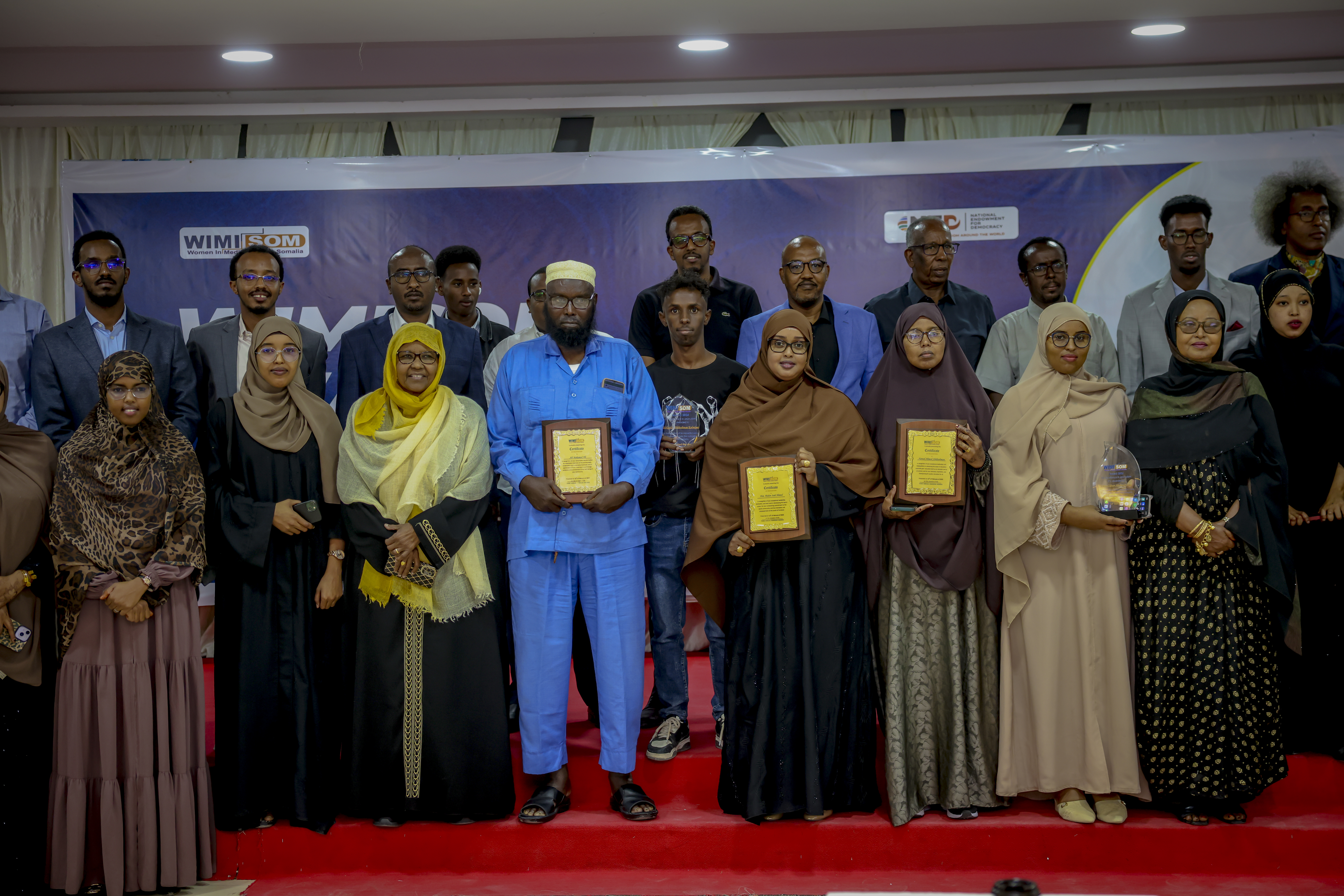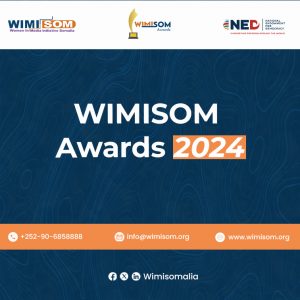Garowe, Somalia – As part of the International Women’s Day commemoration, the Women in Media Initiative Somalia (WIMISOM) organized a discussion on Somali women’s economic situation. The event, brought together a diverse array of stakeholders, including government officials, community leaders, activists, and women entrepreneurs, to spotlight the barriers hindering women’s economic empowerment and devise strategies for inclusive growth.
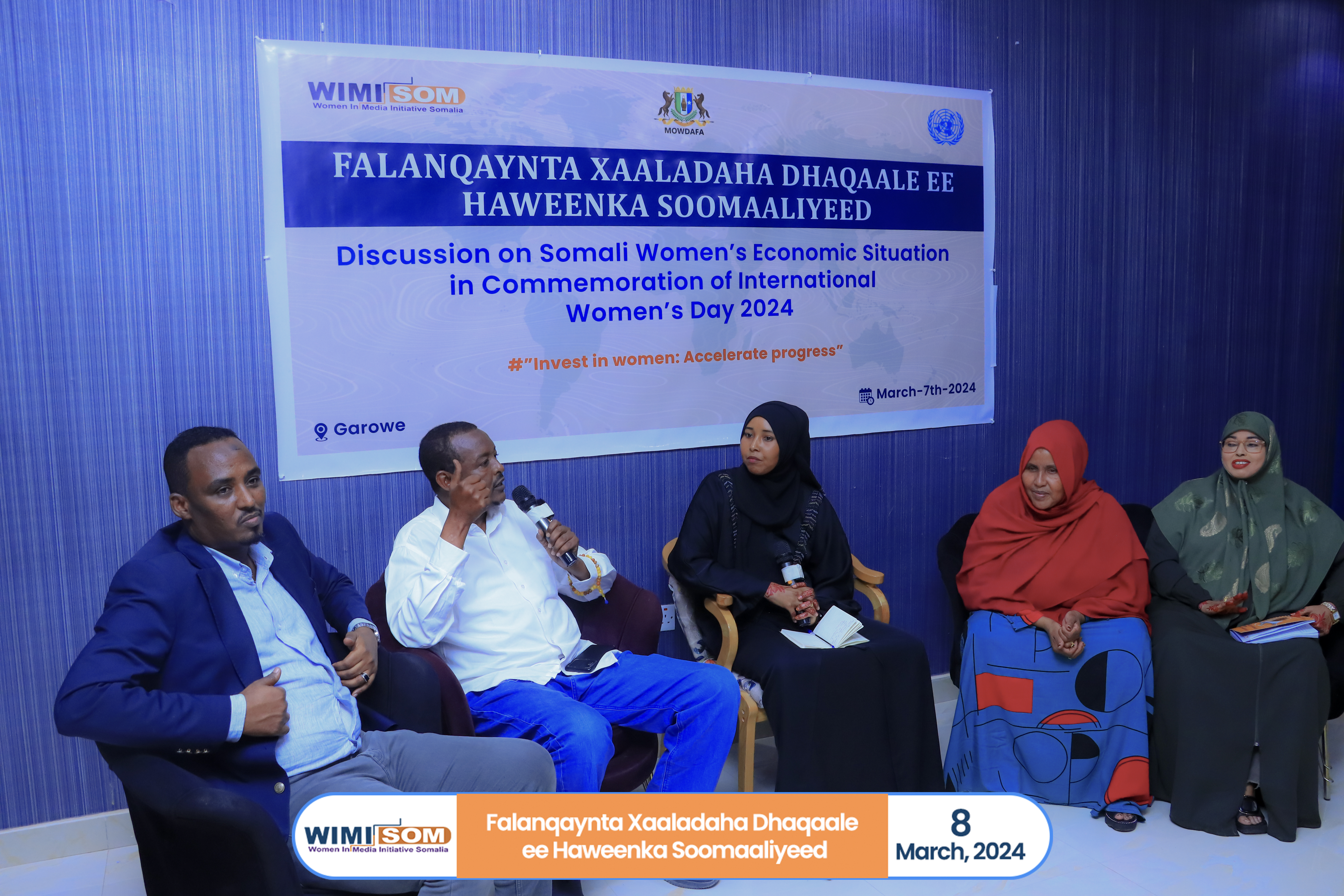
The discussion underscored the multifaceted challenges confronting Somali women in accessing economic opportunities. High levels of unemployment, limited access to education and skills training, as well as systemic barriers to financial inclusion, were among the key issues highlighted. Participants emphasized the urgent need for concerted action to dismantle these barriers and create an enabling environment for women to thrive economically.
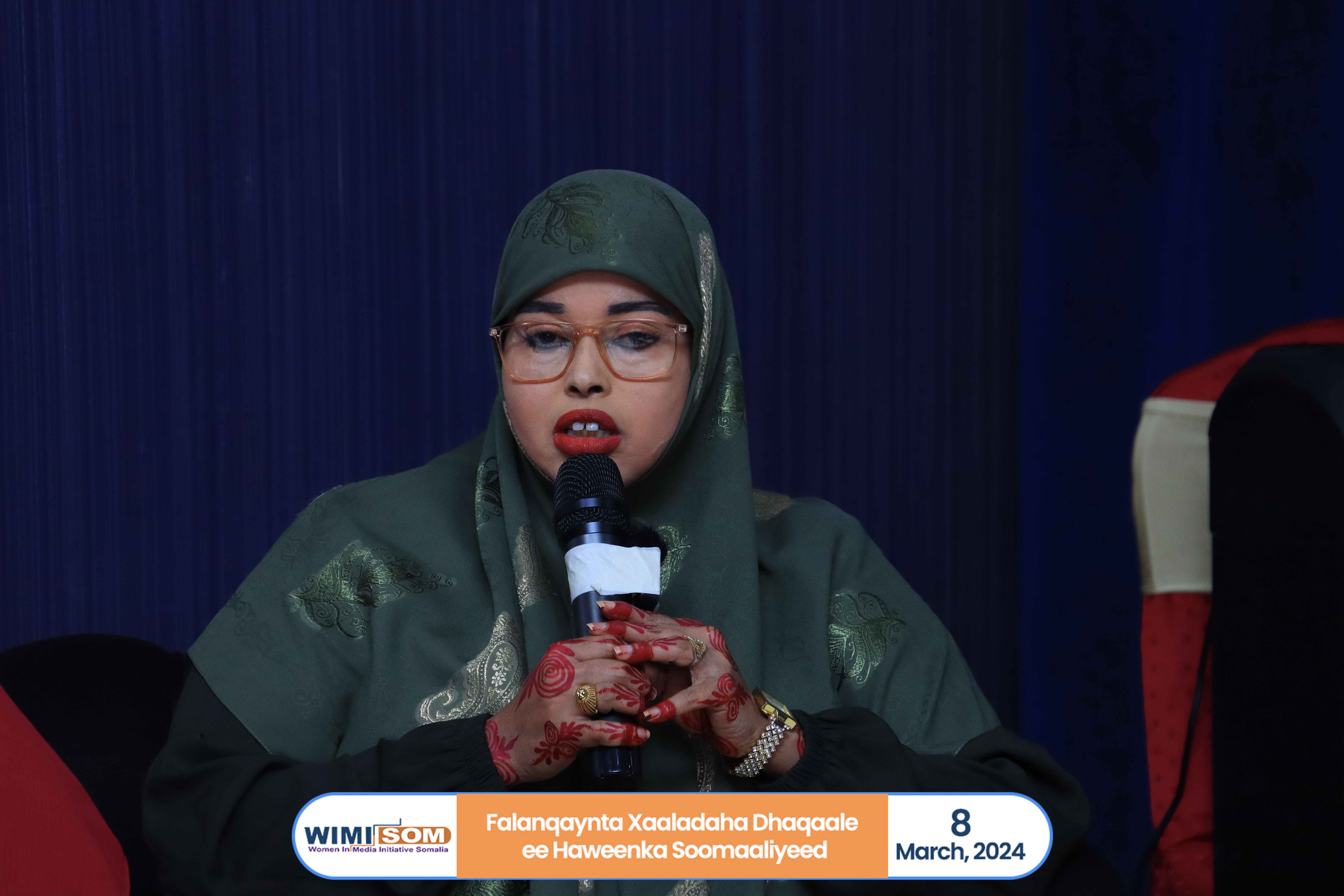
“We cannot achieve sustainable development in Somalia without harnessing the full potential of our women,” remarked Ifrah A. Farah, a prominent women’s rights advocate and keynote speaker at the event. “Investing in women’s economic empowerment is not only a matter of social justice but also a strategic imperative for advancing our nation’s prosperity.”
Throughout the discussion, participants shared inspiring success stories of women who have defied the odds and made significant contributions to their communities and the economy. From small-scale entrepreneurs to women leading initiatives in agriculture, technology, and trade, these stories served as a testament to the resilience and resourcefulness of Somali women.
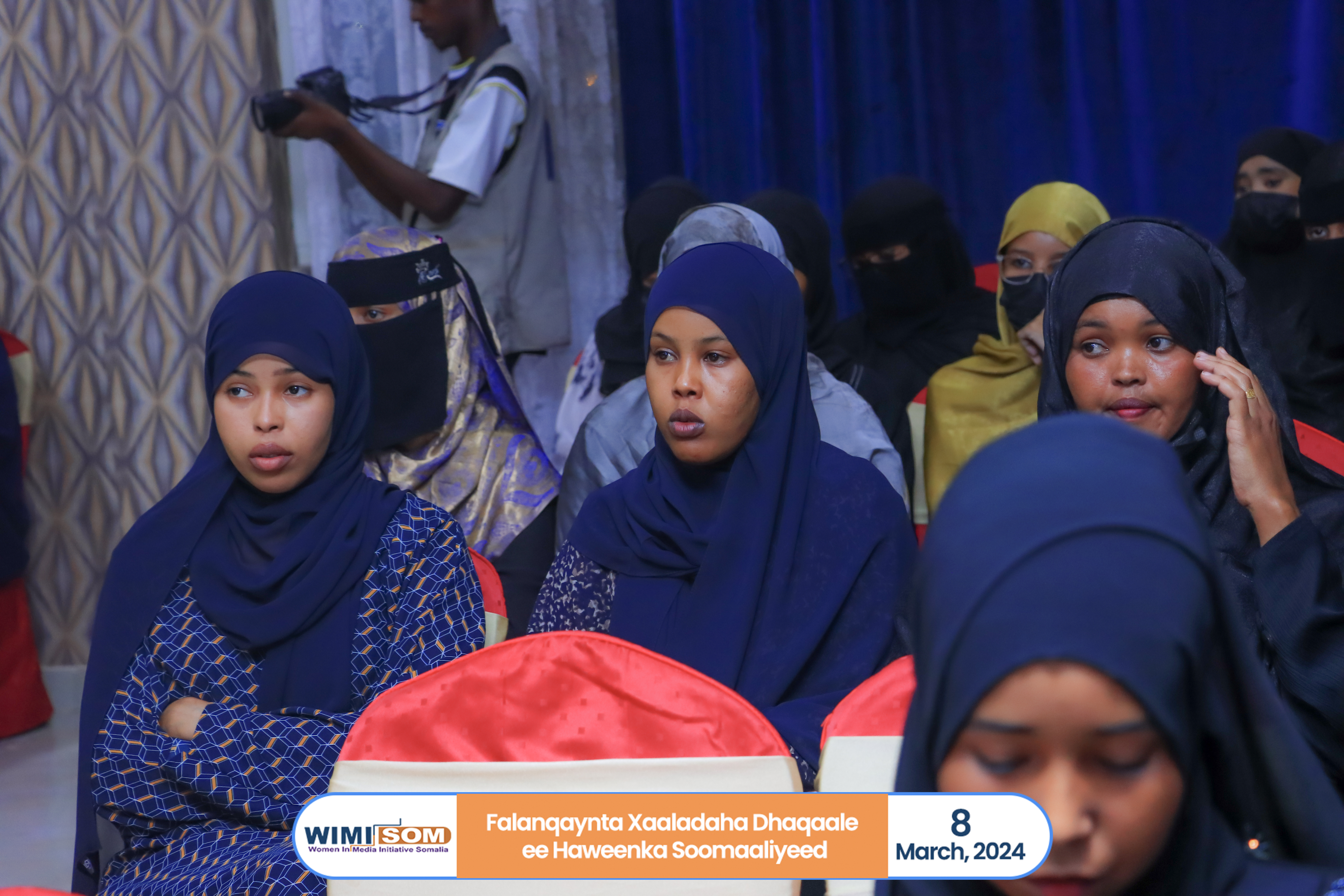
In addition to highlighting challenges, the conversation also focused on practical solutions and policy interventions to address the gender gap in economic participation. Recommendations ranged from implementing targeted skills development programs and providing access to affordable credit to promoting gender-sensitive policies and fostering a supportive business ecosystem.
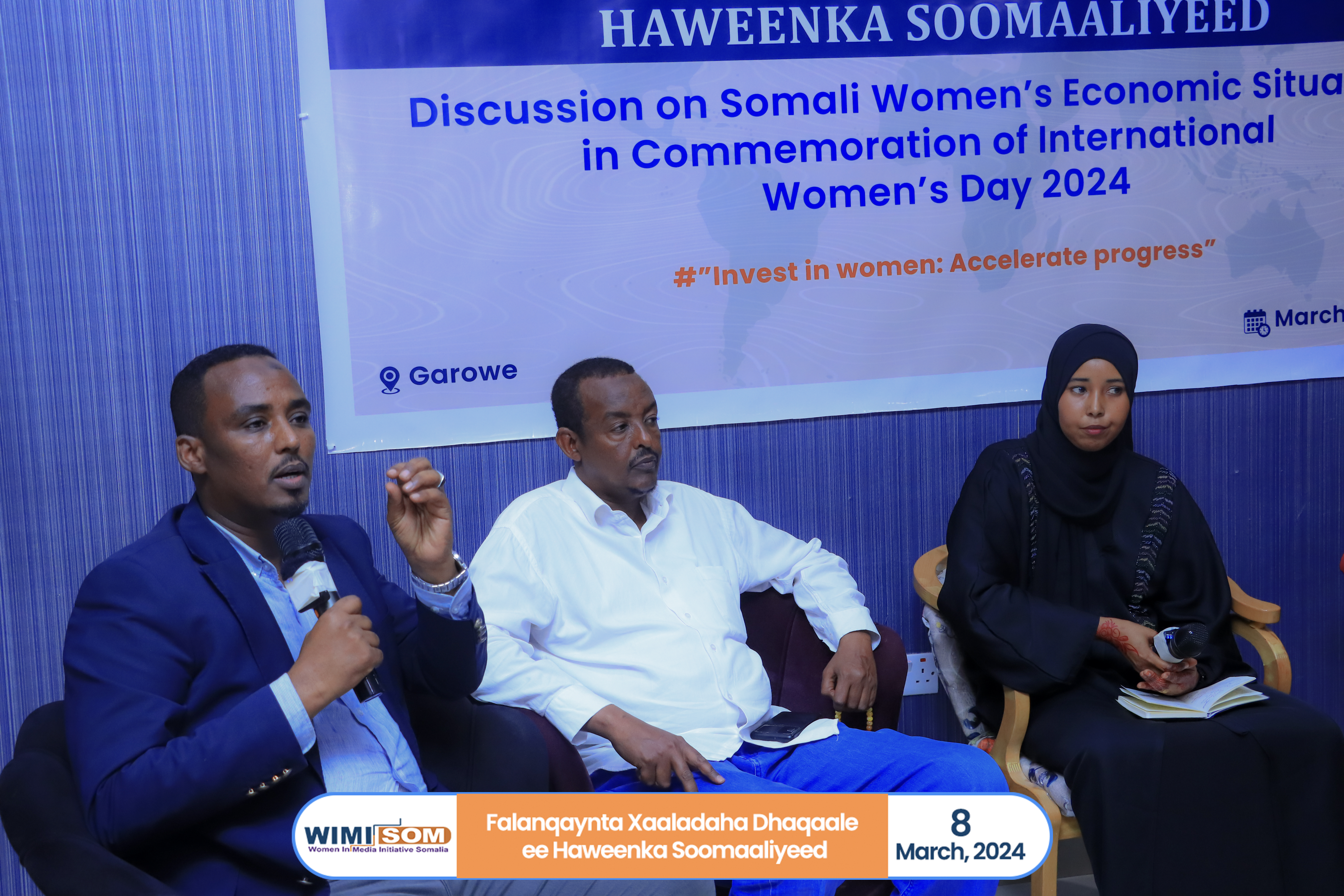
“As we celebrate International Women’s Day, we must recommit ourselves to advancing gender equality and women’s empowerment in Somalia,” stated Muse Said, from Himilo Microfinance Somalia. “Empowering women economically not only benefits women themselves but also contributes to poverty reduction, economic growth, and social stability.”
Throughout the discussion, panelists emphasized the necessity of adopting a multi-pronged approach to bolster women’s economic empowerment, outlining key strategies: Equal Access to Education, financial inclusion, addressing legal and policy barriers, and promoting entrepreneurship and skill development.
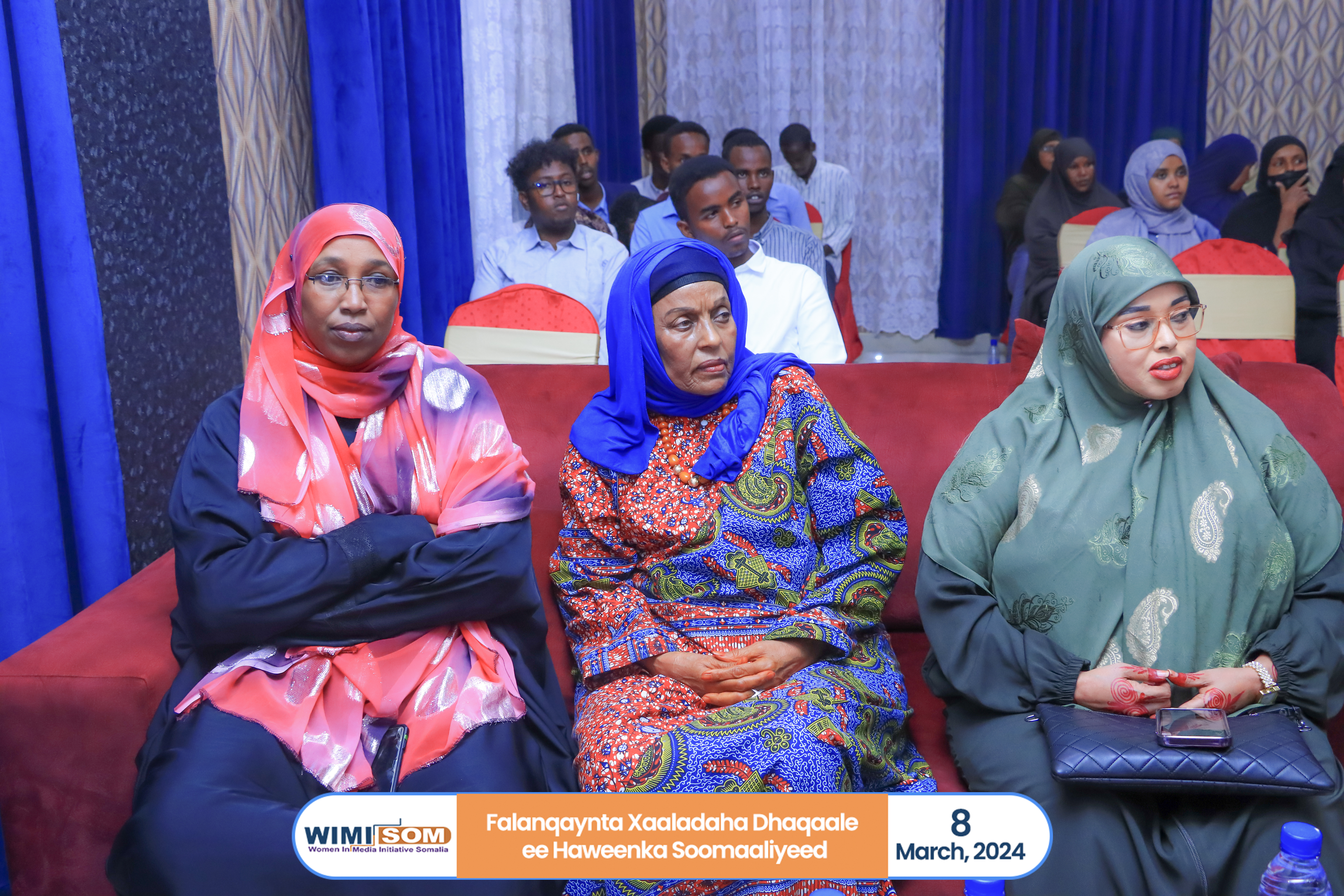
The event concluded with a call to action for all stakeholders to redouble their efforts in advancing the economic rights and opportunities of Somali women. Participants pledged to work collaboratively to implement the recommendations put forth during the discussion and to advocate for policies that prioritize gender equality and inclusive development.
The discussion was implemented with support from the United Nations Support Office in Somalia – UNSOM


